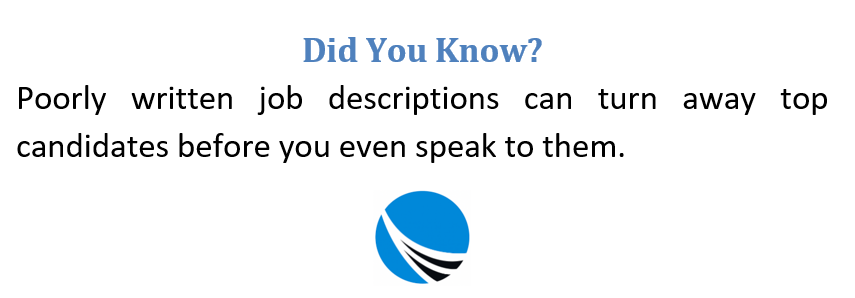Running a small business successfully depends heavily on building a skilled and reliable workforce. But attracting top-tier candidates isn’t always straightforward, especially in today’s competitive landscape. From rising expectations to budget limitations, small business owners often find themselves navigating a maze of recruitment difficulties. This guide outlines the most pressing hiring challenges facing small businesses and offers practical solutions to address each one effectively.

The Market is Fierce and Candidates are Selective
The employment landscape has evolved into a highly competitive space, where candidates often have multiple offers on the table. Even with a decent number of applicants, finding someone who not only fits the role but also aligns with your company values can feel daunting. Many of the best candidates are already employed and not actively looking for a change unless there’s a compelling reason to consider your offer.
Small businesses must realize that it’s no longer enough to post a job and wait. Instead, they must proactively promote their company’s value proposition. Why should a successful professional leave their current position to join your team? Answering that question clearly and persuasively is key.
You can set yourself apart by offering not just fair compensation but also benefits like flexible hours, hybrid work setups, or a clear path for career growth. A strong employer brand and personalized recruitment messages help you cut through the noise and reach those elusive top performers.
Workplace Inclusion Makes a Difference
Diversity and inclusion have become core priorities for job seekers, particularly younger generations entering the workforce. Companies perceived as exclusive or indifferent to equity often lose out on highly qualified applicants.
Inclusive hiring isn’t just a social responsibility—it’s a competitive advantage. Candidates want to see themselves reflected in your team. They want to know that your business welcomes different perspectives and backgrounds. If your hiring materials, team composition, or office environment suggest otherwise, you may be limiting your reach.
To foster genuine inclusion, go beyond surface-level messaging. Implement fair hiring practices, offer bias training to your team, and ensure your job descriptions are free from discriminatory language. Promote an environment where every employee feels seen, heard, and valued.
Mental Health and Well-being Matter More Than Ever
Today’s professionals are more attuned to their mental wellness and expect employers to take it seriously. Small businesses that neglect employee well-being may find themselves losing out to companies that offer a more supportive environment.
Mental health initiatives don’t have to be extravagant or expensive. Small gestures—like allowing flexible hours, encouraging mental health days, and offering access to counseling services—go a long way in demonstrating that you care. Even simple actions like checking in regularly with your team or providing quiet spaces to decompress can significantly enhance the employee experience.
You don’t need to match the benefits of big corporations dollar for dollar. Instead, focus on offering meaningful support that fits your budget while genuinely benefiting your team.
Large Companies Are Upping the Stakes
It used to be that small businesses could appeal to candidates by offering flexibility and a close-knit environment. But larger firms have caught on. Many now provide flexible work arrangements, mental health resources, and purpose-driven missions—making it harder for small businesses to compete based on those advantages alone.
What’s the solution? Get creative with your offerings. You may not have a corporate-sized budget, but you can still stand out. Highlight your company’s uniqueness, whether it’s your collaborative culture, rapid promotion potential, or impact-driven work.
Additionally, consider offering nontraditional perks like pet-friendly offices, volunteer days, or mentorship programs. These types of benefits cost little but can make a strong impression. Reinforce your identity as a workplace that genuinely values its people and their contributions.

Candidates Are Interviewing You, Too
The hiring process is no longer a one-way evaluation. Candidates now expect to be courted and convinced. They’ll assess your company’s vibe, responsiveness, and professionalism just as thoroughly as you review their résumé.
Some small businesses, especially those run by first-time founders, may cling to outdated hiring philosophies where the job seeker has to “prove” themselves. That mindset can alienate top talent, especially when multiple opportunities are on the table.
Shifting your perspective is essential. Approach recruitment like a partnership. Respect candidates’ time, communicate openly, and offer them a glimpse of the real culture and values behind your brand. Show them what makes working at your company a smart and fulfilling choice.
Budget Constraints Limit Compensation Packages
Salaries and benefits are major factors in a candidate’s decision-making process—and unfortunately, this is where small businesses often hit a wall. Larger employers can easily outbid them, making it hard to compete on financial terms alone.
Still, not all hope is lost. While you may not offer the biggest paycheck, you can provide a well-rounded compensation package that includes other valuable benefits. Think flexible scheduling, professional development opportunities, recognition programs, or even equity in the company for long-term hires.
Also, keep in mind that many job seekers are motivated by more than just money. The chance to work in a supportive team, contribute to something meaningful, or grow quickly in their career can be just as enticing.
Poorly Written Job Descriptions Push People Away
Job seekers rely on your job description to understand what the role entails, what your company is about, and whether they’re a good fit. Yet many small businesses rush this crucial step, recycling generic language or posting vague responsibilities.
A misleading or underwhelming job description can lead to a wave of unqualified applicants—or worse, discourage the right ones from applying at all.
Crafting a solid job post starts with clarity. Be specific about what success looks like in the role. Include your company’s values and how the position contributes to the bigger picture. Mention both must-have and nice-to-have skills, and describe the team dynamic.
Consider how the role can evolve in the future and incorporate that into your post. Candidates want to know there’s room to grow and make an impact.
Your Recruitment Process is Turning People Off
Even with a compelling job post, your hiring process itself can make or break the experience for applicants. Long delays, lack of communication, and poorly prepared interviewers can leave candidates feeling undervalued or frustrated.
In an age where reviews about the candidate experience are shared online, a negative hiring process can affect your brand reputation. And let’s face it—top talent won’t wait around for weeks without feedback.
Make the process smooth and respectful. Respond quickly, offer flexible interview times, and create a two-way dialogue during interviews. Candidates should leave the experience feeling heard, respected, and informed.
Train your interviewers to sell the opportunity as much as assess fit. Make space for candidate questions, give clear timelines, and follow up—even if the answer is a “no.”
Bringing it All Together
Attracting the right people to your small business requires a blend of intention, creativity, and empathy. In today’s competitive hiring climate, it’s not enough to offer a job—you must also offer a compelling reason for someone to join your journey.
Whether you’re struggling to match compensation, appeal to new values, or simply streamline your hiring process, each challenge presents a chance to improve. Focus on building a workplace that people genuinely want to be a part of, and make sure that shows in every step of your recruitment process.
By recognizing the hurdles and proactively addressing them, you position your business to stand out—not just as a place to work, but as a place to grow, contribute, and thrive.
Summary: Tackling Hiring Challenges in Small Businesses
Hiring the right people is one of the biggest hurdles small business owners face today. From a competitive job market to limited budgets and evolving employee expectations, attracting top talent takes more than just posting a job ad.
Key challenges include:
- Competing in a tight labor market where top candidates often aren’t actively job hunting.
- Meeting expectations around workplace culture, inclusion, and mental health support.
- Matching compensation and perks offered by larger companies.
- Crafting clear and appealing job descriptions.
- Running a respectful, engaging recruitment process that reflects your company values.
To succeed, small businesses must:
- Highlight what makes them unique, from flexible schedules to mission-driven work.
- Build inclusive, supportive environments that resonate with modern job seekers.
- Streamline hiring processes and treat candidates as valued partners.
- Offer creative, meaningful benefits—beyond just salary.
By focusing on authenticity, clarity, and candidate experience, small businesses can stand out and hire great people who help them grow.
